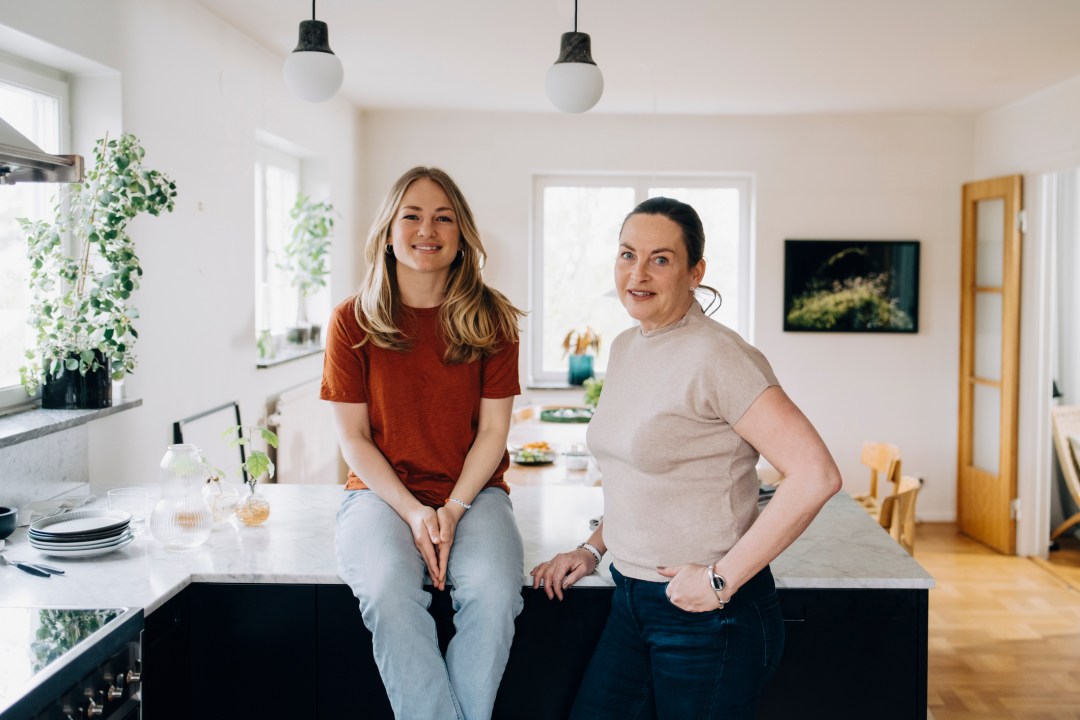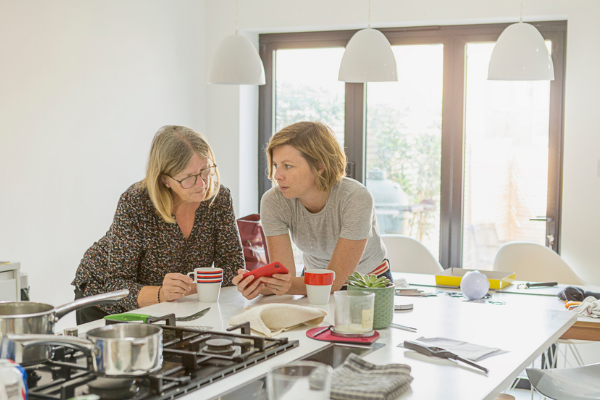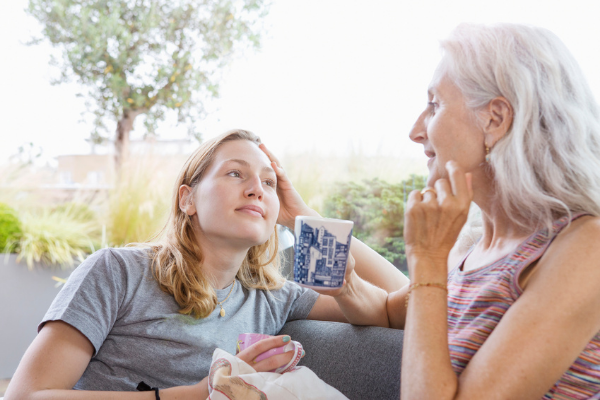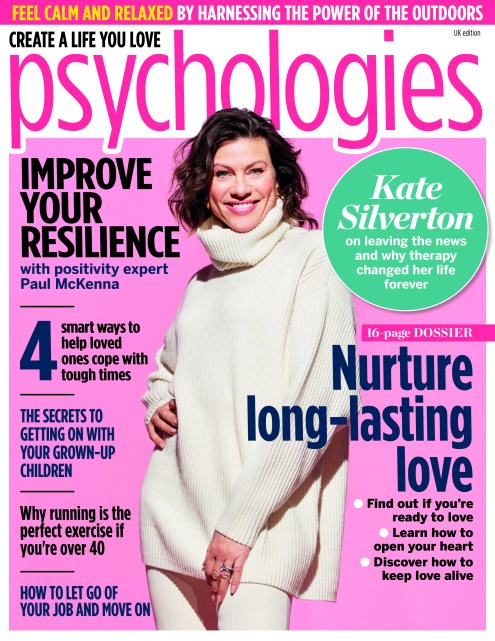What empty nest syndrome? How to navigate living with an adult child
Motherhood is a labour of love, then babies grow up and find their own way in the world. But with a growing number of adult children living at home, the ongoing responsibility can weigh heavily on a parent. Vee Sey steers her family towards modern domestic harmony

Bellies are full, PJs are on, the home is cosy and the wolf has backed away from the door. My two children are watching a film with a deafening soundtrack that pierces right through me, and I can barely hear the news on the radio as I put on a load of washing and finish up in the kitchen. I have brought home the bacon, kept house and nurtured my young for another day.
‘How old are your little ones?’ you might ask, and the answer is somewhat embarrassing for all three members of my nuclear family: my kids are in their 20s and, while I adore the bones of them, I am worn down by this level of parental care, not to mention financial support, which they still need and I desperately want to provide. But I know co-residential motherhood for two and a half decades is taking its toll on me, and I resent it at times.
While some empty nesters are lamenting their aloneness with longing, and liberated others are celebrating time to travel, freedom to pursue their passions and money for themselves once the children have moved out, my offspring are of the boomerang variety: the rising phenomenon of adult children returning to the family home – after their studies and due to the unattainable cost of housing – to stretch a parent’s tolerance, devotion and bank account. The ONS reports a 46 per cent increase in the number of young people aged 20 to 34 living with their parents, while research by the London School of Economics suggests that intergenerational cohabitation can have a negative impact on a parent’s quality of life. And here we are…
Bethan O’Riordan, a psychotherapist and parenting expert, offers comfort, telling me that I am not to blame for continuing to ‘be mother’ as I did when they were helpless, instead of telling them to look after themselves (which remains on the tip of my tongue). Rationally, I see that I am being my own worst enemy taking everything on my shoulders and doing them no favours with regards independence – but I can’t seem to stop myself. ‘The mother’s role will always be to give, provide and care, and this should naturally end at a point where the child becomes an adult, at around the age of 18,’ explains O’Riordan. But, while they are still under my wing and roof, ‘not taking care of them goes against the grain of everything we are told as mothers’, she adds.

O’Riordan says that my wellbeing may be coming second place to my maternal role, which is inherent within the family system. ‘The diffi culty with this situation is that none of the adults have the opportunity to diff erentiate, individuate and become their own person who is not answerable to anyone else. Living at home means that there will always be a level of emotional and physical enmeshment whereby the child never gets to move away from being a child and the mother remains the mother.’ So it seems we are all doing what comes naturally, but for an unnaturally long time. How, then, do I deal with feeling put upon while we play the extended version of happy families – and then not feel that I have let them down by insisting on change?
‘In practical terms, can the adult children do more tasks and take ownership of more inside the household?’ she probes, and of course I know they can. It’s clear that I will have to snap the rod I have made for my own back and renegotiate our terms and conditions, but how can we thrive psychologically as we recreate the norm? ‘From an emotional perspective,’ says O’Riordan, ‘what the mother can do is take a stand for a better and higher functioning of herself. Families work as an emotional unit, but when one person steps out of their patterned position and away from the mental concept of togetherness towards a more helpful way of being, this changes the dynamic. If the mother changes for the better, this encourages the children to do the same, then being at home together doesn’t feel quite so together.’
The martyred mother
With reflection, I realise that my own mum’s self-sacrificing and long-suffering nature has permeated my parenting and, to deal with my guilt about pulling away for the greater good, O’Riordan recommends self-compassion – although she admits it sounds airy-fairy as a solution. ‘However,’ she stresses, ‘if we look at the function of guilt, it can ease it: Guilt is our mind’s way of ensuring that we do no harm. Imagine how wild we would be if we had no system letting us know that it wasn’t OK to do certain things! But the most important part of guilt is to be able to contextualise it and understand it. The most powerful way of developing the skills for this is by cultivating self-kindness, which is a true mental strength that helps us understand ourselves. It’s like having an inner ally who always has our best interests at heart. It allows us to see our feelings as valid and offers us awareness and the opportunity to create actionable steps towards alleviating our suffering.’
To complicate matters, we have the flip side of my complaining, which is that motherhood has been my focus all my adult life, I enjoy babying them when I am in the mood and the notion of me being surplus to requirements fills me with sadness. ‘This is a matter of identity,’ explains O’Riordan. ‘Everything we do holds a function, so it’s important to take an objective step back and ask: “What is the function of what I am doing and how do I want things to be?”. Historically, caregiving was the role of women, but things are changing. I think women and mothers are caught in limbo between old stereotypes and the new versions of who we want to be.’ And then she drops the bombshell: It may be that I need ‘re-mothering’ to break the pattern of hard-done-by mothers in our family.

The idea of mothering another person, even myself, is unappealing – but the way my mother felt about motherhood, and how that made me feel as a child, is certainly at play here. But I don’t have to suffer because my mother portrayed herself as a victim of motherhood, and I don’t have to protect my children from feeling that they are a burden, as I felt. ‘Re-mothering is a process of exploring what is helpful and serves the individual and family well, and observing and changing what does not. When we were children, we absorbed our mother’s shadow side – the parts that were unspoken, fears and regrets – and often this is what is repeating itself. It’s about figuring out what mothering values were projected on to you and what are your own,’ she says.
‘The tricky thing about a perceived abandoning of our (even adult) children is that as our children age, our minds and bodies release emotional memories of what it was like to be that age. We remember the hurt and the pain and unconsciously don’t want to recreate that within our children. Many parents are fearful to say no to their children but, in fact, the more that you can be congruent to you, the more that allows a child to be congruent to themselves.’ This speaks to me loud and clear, and I realise that I do not have to be trapped in unwilling selflessness to be a good mother to two grown-ups. It also tells me that I must lead the way and they will follow.
As I prepare to empower myself as a daughter, woman and mother, O’Riordan outlines the way forward: ‘Take the focus away from the children and move it to your process of becoming an individual within the family, because awareness is not enough. Explore your needs – nutrition, exercise, who you spend time with, how you enjoy life, your lifestyle choices and sleep… all the parts that make up you. Gain a greater sense of being you – what makes you feel good, fulfilled and at peace, and do more of it!’
Perhaps, and in a different world, my children should have moved out by now, but I want my still-full nest to be welcoming and nurturing, for all three of us. I can’t deny that I have regrets about aspects of the childhood my children have had: the years I was physically absent working evenings… emotionally absent, preoccupied with my love life after my divorce and grief-stricken after my mother died, cooked spaghetti for so many days on the trot that they begged me to stop with tears in their eyes. I can see that, rather than my children being selfish giant toddlers, it is I who has shaped the mechanisms of our household – to right my self-perceived wrongs while continuing a legacy of martyrdom that I have fostered. I will always be their mother. I will always love them more than life itself. But it is time for a new era in the family home that we share – because none of us can spread our wings and fly when I am clipping them.
Love and money
Armed with psychological awareness, it’s time to address the elephant in the room: the financial burden. Esther O’Brien, a money coach, is adamant I should not be footing the bill if my children are earning. ‘The lesson they need to learn is that living expenses do not come for free,’ she says. ‘Society has changed and children are staying home for longer, but it does not mean that they are your financial responsibility for ever. It’s about what each family can manage and having a conversation.’

To figure out how my personality influences my handling of the situation, she wants to determine my ‘money type’. She asks me to take a quiz by The Money Coaching Institute – and the results are no surprise. ‘The quiz reveals that you are an “innocent”, a “victim”, an “artist”, and a “martyr” when it comes to money,’ she says. There’s the martyr again. ‘The innocent is naive, feels powerless and likes to leave everything to others. The victim is stuck in the past, blaming everybody else rather than taking responsibility. They may seek to be rescued and can live out a self-fulfilling prophecy. The artist is non-materialistic and spiritual and would prefer not to think about money,’ she explains. ‘Martyrs rescue people and put others’ needs before their own, then resent it.’ I know this much is true. But she adds: ‘Remember that you are not these things – this is just behaviour that you display, and you can change it.’
O’Brien assures me that payment of board by employed children is not an old-fashioned concept. ‘I understand your children may be saving for their own homes but they are living in yours and asking for a contribution is not outlandish,’ she says. ‘It would cost a lot more if they were living on their own!’
So how do I grasp the nettle? ‘Arrange a family meeting,’ she advises. ‘Explain how much things cost and what you expect them to contribute. It could be a percentage of what they earn or an actual amount – but be very clear that you expect them to help out.’
She outlines a practical plan: ‘Make a list of all the household expenses: food, council tax and utilities, then add it up. Do it properly. Do not guess, because food often catches people out. Explain that this is what it costs to run the house, but you are subsidising them and need them to share the load. Ask them what they feel is fair and have an idea of what you think is fair. You could also make a meal plan for the week together, whereby they could each pay for and make one meal or more, which will massively cut down your food bill,’ she says.
‘We identified that you have characteristics of innocent, victim, martyr and artist. You don’t like confrontation, preferring to bury your head in the sand in the hope everything will be OK, but you must get on top of this to stop the simmering inside,’ O’Brien concludes.
The experts
With thanks to our experts for their advice and contribution to this feature.
Bethan O’Riordan is a psychotherapist specialising in parental support. Join her Facebook group here.
Esther O’Brien is a money coach and mentor. For her free ‘Five things stopping you from reaching your money goals’ tips, click here.
Photographs: Getty Images








